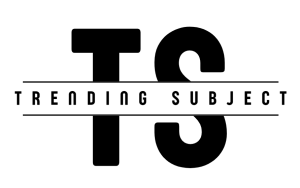The U.S. Food and Drug Administration (FDA) recently announced a concerning update regarding previously recalled Philips breathing devices and ventilators used to treat sleep apnea. According to the agency, these devices may be linked to hundreds of deaths since the initial recall announcement in mid-2021. The FDA has received over 116,000 medical device reports (MDRs), including 561 reports of deaths associated with foam breaking down in Philips Respironics ventilators, BiPAP sleep therapy devices, and CPAP machines.
Since July 2023, the FDA has received over 7,000 MDRs, with 111 reports of deaths tied to these specific breathing devices and ventilators. These reports also highlighted a wide range of injuries such as cancer, pneumonia, asthma, infection, and more. The FDA has stated that the breakdown of foam used in these devices can potentially result in serious injuries and may require medical intervention to prevent permanent damage.
Millions of devices have been recalled by Philips since June 2021 due to reports of the internal foam breaking down over time. This can lead to users inhaling tiny particles and fumes while they sleep. The FDA states that the polyester-based polyurethane (PE-PUR) foam used in these machines can break down and release “black pieces of foam” or certain invisible chemicals that can be breathed in or swallowed. These issues can cause serious harm to the user’s health.
Philips has suspended the United States sale of sleep apnea gear as they face hundreds of lawsuits from patients who claim their health has suffered due to the use of these devices. Additionally, the outcome of the U.S. Department of Justice’s investigation into the handling of the recall has also put Philips under scrutiny. In response to the investigation, a Philips spokesperson stated that they have found no conclusive data linking these devices to the deaths reported in the MDRs. They have also mentioned that their ongoing testing has not shown any significant harm to the users.
A few days prior to the FDA’s announcement, Philips agreed in a settlement with the health regulator and DOJ to halt sales of new devices in the U.S. until they comply with a tentative agreement, which could cost the company nearly $400 million. This agreement is still pending approval from a U.S. judge. Philips executives have disclosed that they have set aside $393 million for corrective actions and upgrades needed to comply with the agreement.
The company is facing similar legal challenges in other countries such as Canada, Australia, Israel, and Chile. A full list of the devices affected by the recall can be found on the FDA’s website. Most of the recalled devices are CPAP machines, which are worn at night to help those with sleep apnea. The disorder causes individuals to stop breathing while asleep, and the brain wakes them up to prevent harm. However, this prevents restful and healthy sleep.
The FDA urges individuals who use these recalled devices to consult with their healthcare providers before making any changes to their treatment, as stopping the use of these devices without medical guidance can be harmful. The agency also advises users to regularly check the FDA’s website for updates on the situation. Philips has also discontinued the use of PE-PUR foam in their devices and is working to provide replacements or repair options for affected devices.
Recalled devices include:
- A-Series BiPAP A30
- A-Series BiPAP A40 (ventilator)
- A-Series BiPAP Hybrid A30
- A-Series BiPAP V30 Auto (ventilator)
- C-Series ASV (ventilator)
- C-Series S/T and AVAPS
- DreamStation
- DreamStation ASV
- DreamStation Go
- DreamStation ST, AVAPS
- Dorma 400
- Dorma 500
- E30
- Garbin Plus, Aeris, LifeVent (ventilator)
- OmniLab Advanced+
- REMstar SE Auto
- SystemOne ASV4
- SystemOne (Q-Series)
- Trilogy 100 (ventilator)
- Trilogy 200 (ventilator)








